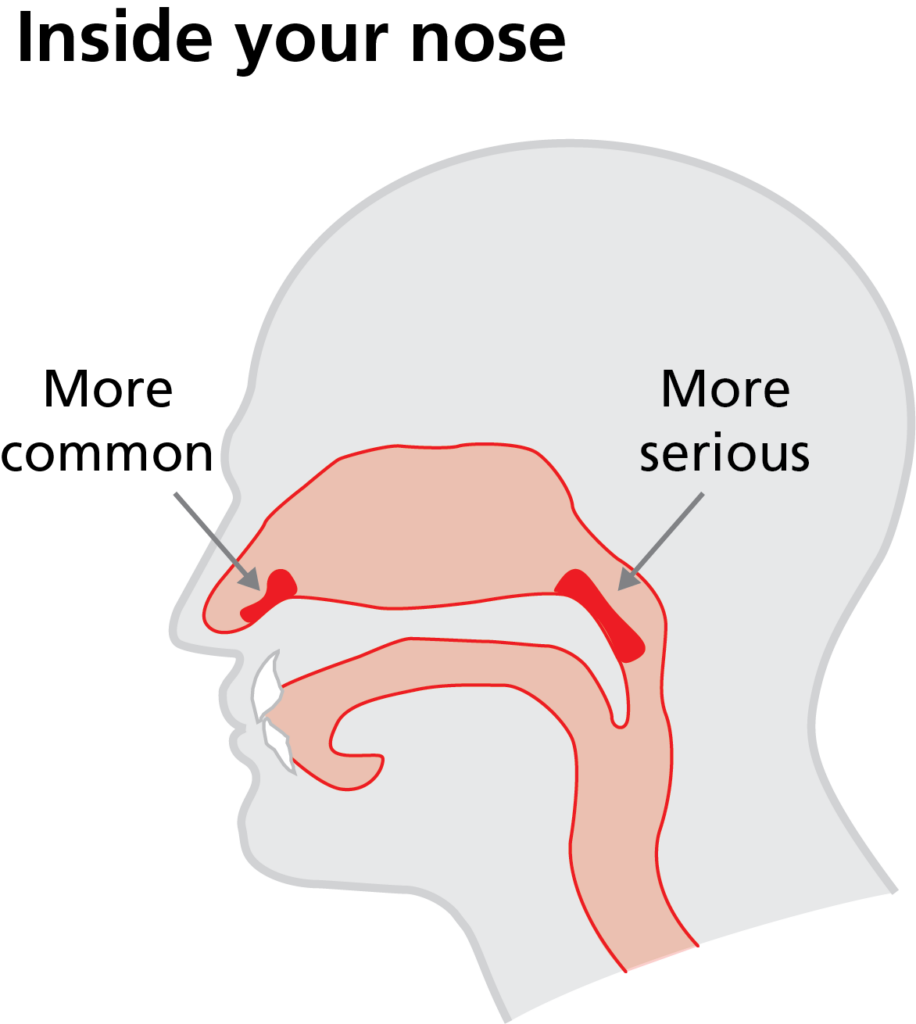The most common place for a nosebleed to start is just inside the nostrils by the septum (middle of the nostrils).
This is due to the delicate blood vessels inside your nose becoming damaged.
This can happen easily and the most common causes for anterior nosebleeds include:

Sometimes, bleeding can come from the blood vessels deeper inside the nose.
Bleeding can be caused by a number of things including:
Posterior nosebleeds are much less common and usually affect older adults. They can be serious because the blood flow is heavy.
When you have a nosebleed there are some simple steps you can take to help it stop:
If after 20 mins your nose is still bleeding heavily you should go to your nearest Emergency Department.
Usually the bleeding will stop if you have followed the advice in this leaflet. No further treatment will be needed however, please contact your GP or NHS 111 if:
Bradford Royal Infirmary; Emergency Department: 01274 272747
Or contact your GP.
You can contact us using the Relay UK app. Textphone users will need to dial 18001 ahead of the number to be contacted.
Bradford Teaching Hospitals NHS Foundation Trust is a smoke-free organisation. You are not permitted to smoke or in use e-cigarettes in any of the hospital buildings or grounds.